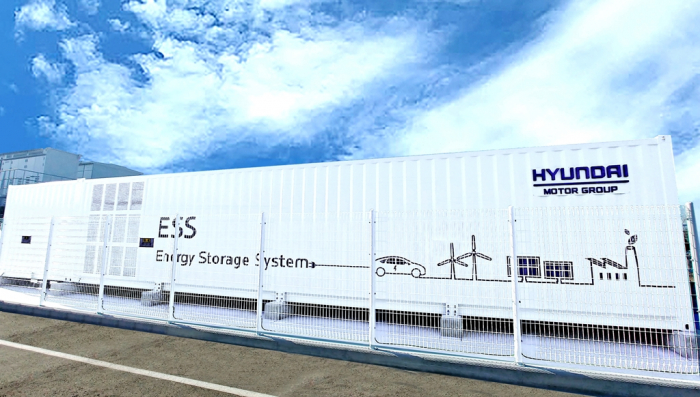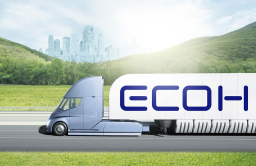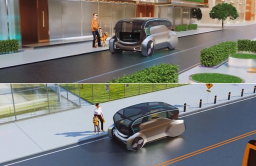-
KOSPI 2812.05 +41.21 +1.49%
-
KOSDAQ 756.23 +6.02 +0.80%
-
KOSPI200 376.54 +6.64 +1.80%
-
USD/KRW 1373 3.00 -0.22%
Hyundai Mobis plans battery remanufacturing business
Batteries
Hyundai Mobis plans battery remanufacturing business
Hyundai Motor plans to transfer its reuse of waste batteries as ESS business to logistics affiliate Hyundai Glovis
By
Jul 08, 2022 (Gmt+09:00)
2
Min read
News+

Hyundai Mobis Co., a car parts maker within South Korea’s top automaker Hyundai Motor Group, is set to launch an electric vehicle battery remanufacturing business as the conglomerate embraces the global waste battery business, the final value chain of the EV and battery sectors.
Hyundai Glovis Co. also plans to handle the group’s business to reuse waste batteries as an energy storage system (ESS), Hyundai Motor Co. said in its sustainability report released on Thursday. The group's logistics unit launched a new brand to beef up its eco-friendly business, including hydrogen transportation and electric vehicle battery recycling last year.
The global waste battery industry was forecast to surge to 66 trillion won ($51 billion) by 2040 from an expected 6 trillion won in 2030, according to market tracker SNE Research.
Hyundai Motor Group is not the only player to target the market. EV makers such as industry leader Tesla Inc., and battery producers including LG Energy Solution Ltd., SK On Co. and Samsung SDI Co. are also targeting the industry.
REMANUFACTURING
Hyundai Mobis, the world’s sixth-largest auto component supplier, will remanufacture waste batteries of the best quality to use in older EVs or after-sales services, thus extending the battery lifespan. An EV battery's capacity often falls to 70% of the original capacity after eight to ten years of use.
The company plans to establish waste battery remanufacturing bases through its global parts supply chain.
Battery remanufacturing is a process to produce batteries by reusing intact parts of waste batteries and removing or replacing defective parts. The waste battery business usually focuses on recycling or reuse.
ESS
Hyundai Glovis is set to collect waste batteries from junkyards and car dealerships worldwide. The company has developed a container for safe transportation of waste batteries and acquired a patent on the equipment, securing a logistics process to meet complex battery-related regulations around the world.
The group’s logistics unit will expand its business in the sector into the reuse of waste batteries as ESSs. A waste battery can be used for another decade as an ESS as it is or partially modified. It costs less because waste batteries do not need to be dismantled.
Hyundai Motor, which is currently working on a demonstration project in the sector, plans to transfer the enterprise to the logistics affiliate in the future.
“Glovis is poised to set up a full-fledged reuse business with a unified system from collection to reuse,” Hyundai Motor said.
The group aims to dismantle waste batteries that cannot be reused or remanufactured to extract key battery materials such as lithium, cobalt and nickel for battery production.
Such technology became essential in the future EV industry as the European Union required battery makers to increase their use of recycled materials. But the industry can cut costs only when players extract more than 95% of those materials from waste batteries.
Write to Hyung-Kyu Kim at khk@hankyung.com
Jongwoo Cheon edited this article.
More To Read
-
Jun 28, 2022 (Gmt+09:00)
-
 Hydrogen economyHyundai Glovis launches ECOH brand for hydrogen, battery businesses
Hydrogen economyHyundai Glovis launches ECOH brand for hydrogen, battery businessesOct 04, 2021 (Gmt+09:00)



